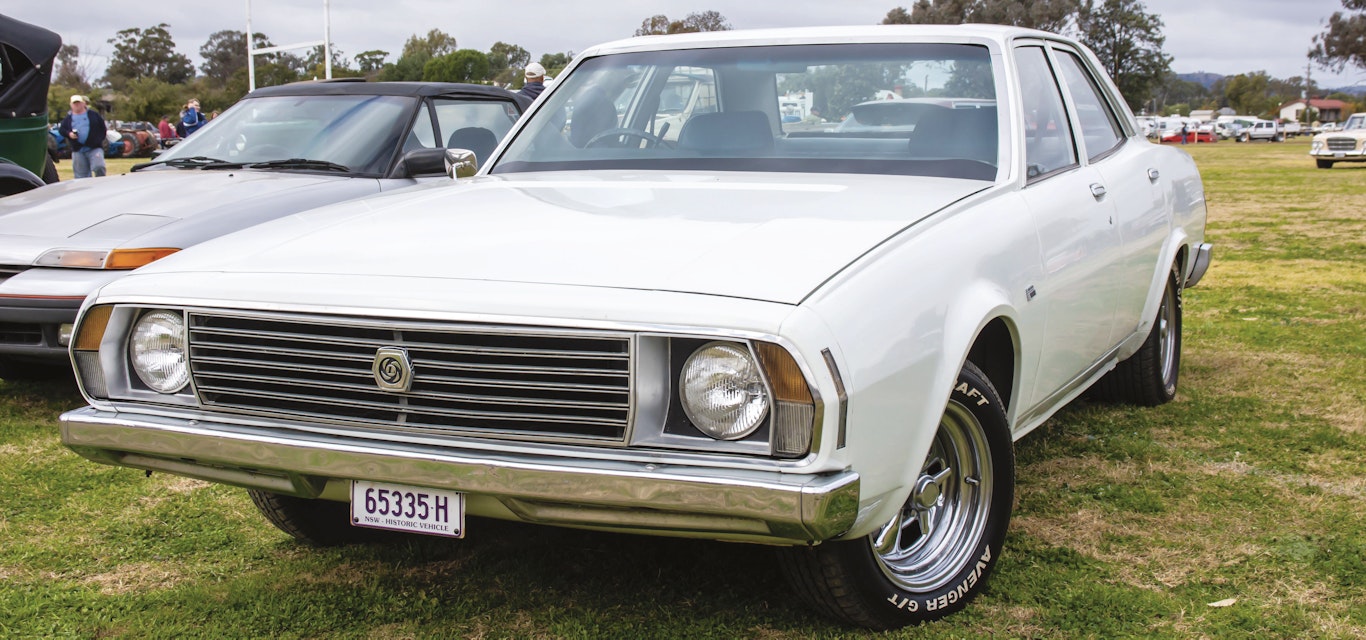In reverse: Driving a wedge
The Leyland P76 has written its way into Australian motoring folklore with enthusiasts divided over whether it was one of the greatest lemons of all time, or a brilliantly designed and engineered but tragically misunderstood machine.
This year marks the 50th anniversary of one of the most controversial Australian cars of all time, the Leyland P76. The futuristic-looking sedan was conceived by British car maker Leyland to go head-to-head with the dominant Australian-made large sedans from Holden, Ford and Chrysler, and could famously carry a 44-gallon drum in its gargantuan boot.
Featuring an innovative wedge shape originally penned by Leyland Australia’s chief stylist Romand Rodbergh and later finessed by famed Italian designer Giovanni Michelotti, who also worked for Ferrari and Maserati, the P76 looked nothing like either of those marques but offered better dynamics and more interior space than its Aussie rivals, plus innovations like power-assisted brakes and full-length side-intrusion beams.
Despite this, and the media fanfare surrounding its launch, a combination of supply chain issues, poor quality control, production issues and industrial action soon dampened the public’s enthusiasm for the car.
In 1973 the P76 claimed the prestigious Wheels Car of the Year award, an accolade mocked by critics but defended by the magazine on the grounds that it was specifically the all-alloy 4.4-litre V8 version that took home the chocolates, and not the inferior 2.6-litre six-cylinder.
As sales grew, so did the list of horror stories from owners, including windows cracking and falling out, poor water and dust sealing, doors that wouldn’t close properly, and a dash that warped in the hot Australian sun. The problems led to the P76 becoming jokingly referred to as the P38, as it was only half the car it should have been.
Coupled with parent company British Leyland’s mounting financial troubles and the Global Oil Crisis, which curbed the public’s appetite for large cars, P76 production came to a shuddering halt just 18 months after its launch.
Leyland Australia and its British parent company bet the house on the P76 but the car bombed, bankrupting Leyland’s local operations and leading to the company shutting down its Australian manufacturing facility in 1974.
P76 sightings are rare these days, as only an estimated 17,000 to 18,000 were built and the car’s poor reputation meant many found their way to early graves. One variant that is tightly held and has become a desirable collector car is the Targa Florio, a limited-edition V8 created to celebrate the P76 winning a World Cup Rally stage in 1974.
For more of the fascinating story behind this iconic Australian automotive enigma, check out Gavin Farmer’s insightful book Leyland P76: Anything but Average.
